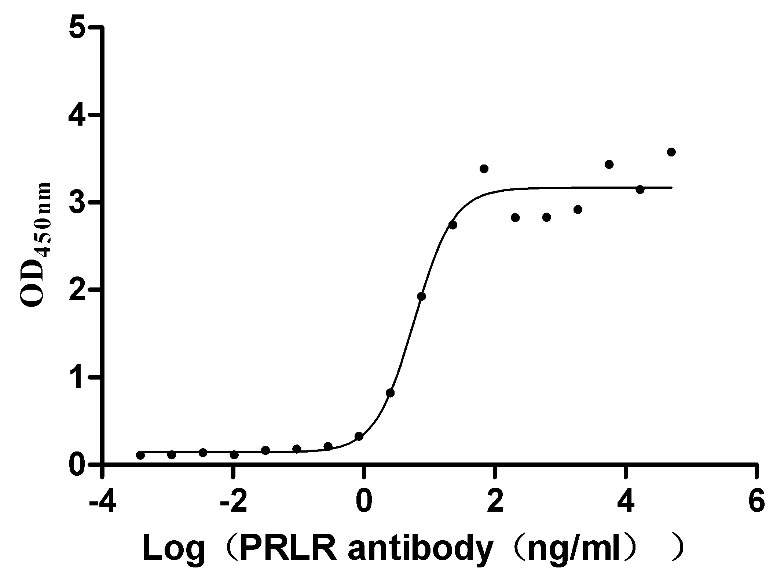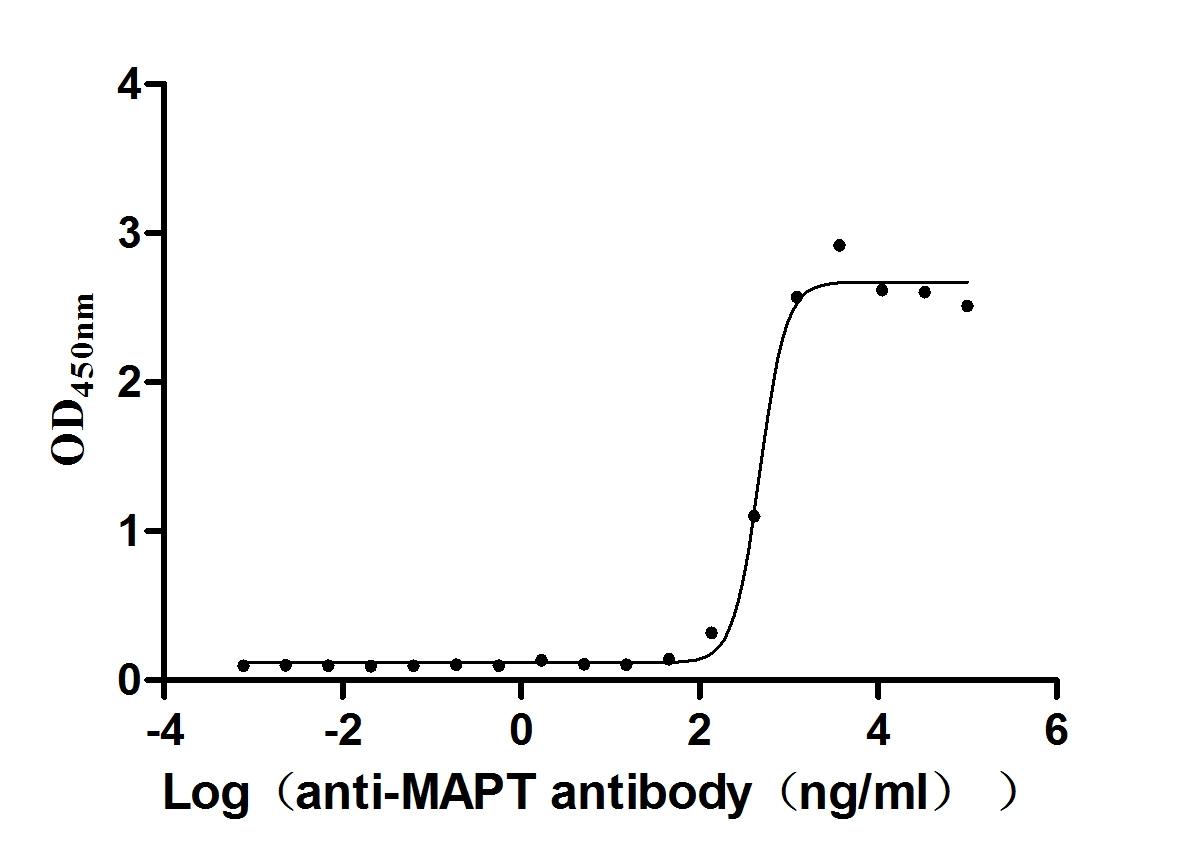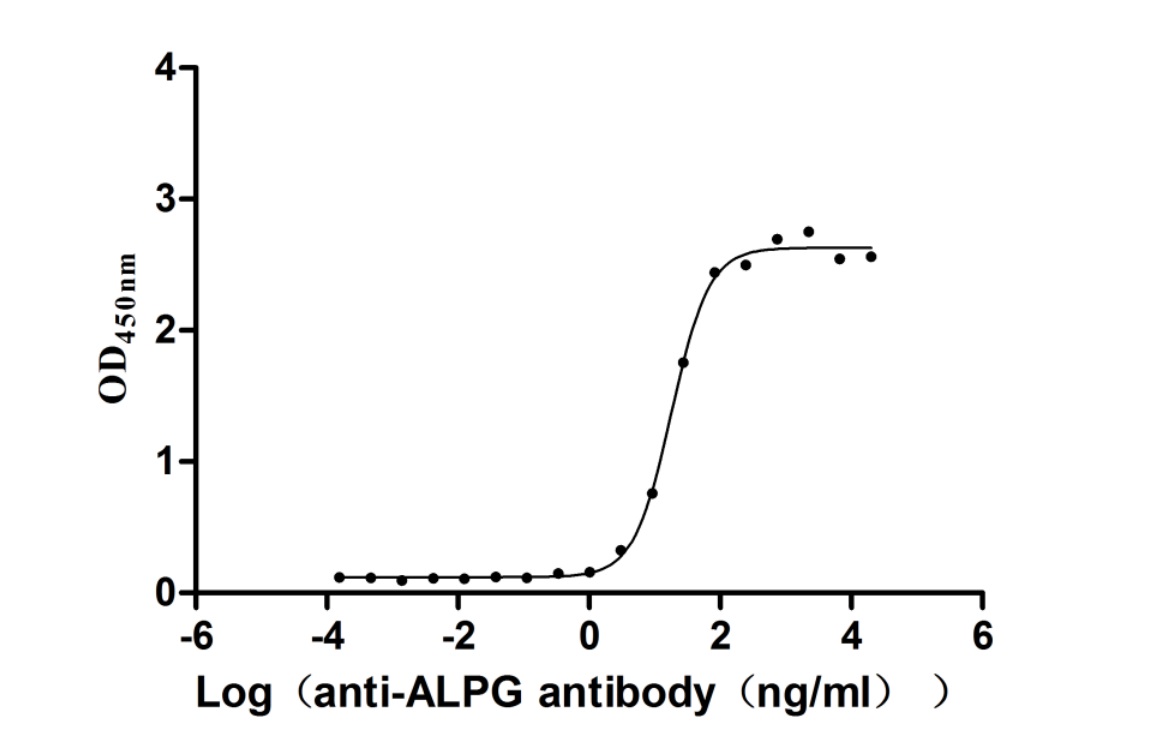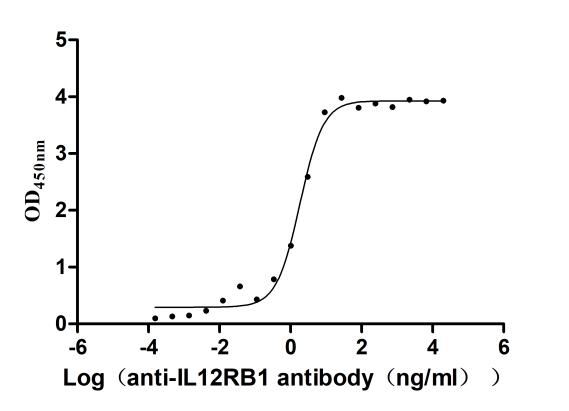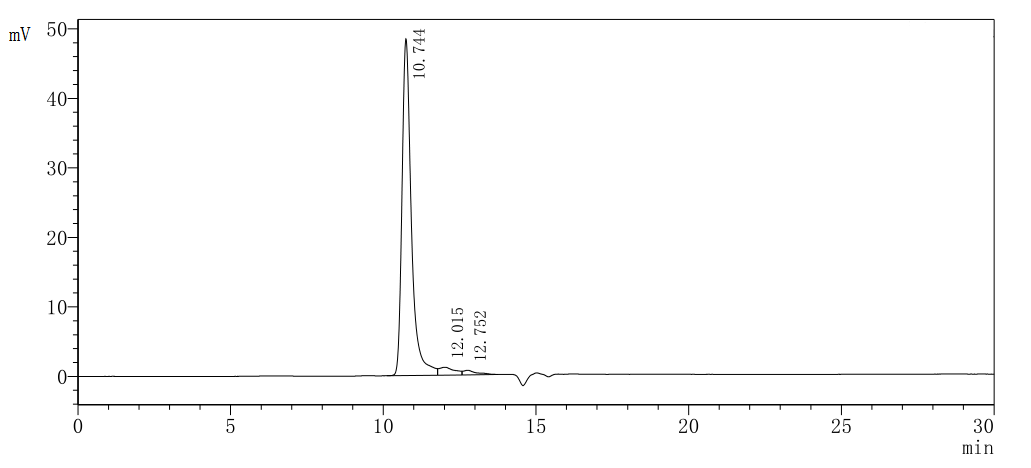Recombinant Mouse RAC-beta serine/threonine-protein kinase (Akt2)
-
货号:CSB-YP717138MO
-
规格:
-
来源:Yeast
-
其他:
-
货号:CSB-EP717138MO-B
-
规格:
-
来源:E.coli
-
共轭:Avi-tag Biotinylated
E. coli biotin ligase (BirA) is highly specific in covalently attaching biotin to the 15 amino acid AviTag peptide. This recombinant protein was biotinylated in vivo by AviTag-BirA technology, which method is BriA catalyzes amide linkage between the biotin and the specific lysine of the AviTag.
-
其他:
-
货号:CSB-BP717138MO
-
规格:
-
来源:Baculovirus
-
其他:
-
货号:CSB-MP717138MO
-
规格:
-
来源:Mammalian cell
-
其他:
产品详情
-
纯度:>85% (SDS-PAGE)
-
基因名:
-
Uniprot No.:
-
别名:Akt2RAC-beta serine/threonine-protein kinase; EC 2.7.11.1; Protein kinase Akt-2; Protein kinase B beta; PKB beta; RAC-PK-beta
-
种属:Mus musculus (Mouse)
-
蛋白长度:full length protein
-
表达区域:1-481
-
氨基酸序列MNEVSVIKEG WLHKRGEYIK TWRPRYFLLK SDGSFIGYKE RPEAPDQTLP PLNNFSVAEC QLMKTERPRP NTFVIRCLQW TTVIERTFHV DSPDEREEWM RAIQMVANSL KQRGPGEDAM DYKCGSPSDS STSEMMEVAV NKARAKVTMN DFDYLKLLGK GTFGKVILVR EKATGRYYAM KILRKEVIIA KDEVAHTVTE SRVLQNTRHP FLTALKYAFQ THDRLCFVME YANGGELFFH LSRERVFTED RARFYGAEIV SALEYLHSRD VVYRDIKLEN LMLDKDGHIK ITDFGLCKEG ISDGATMKTF CGTPEYLAPE VLEDNDYGRA VDWWGLGVVM YEMMCGRLPF YNQDHERLFE LILMEEIRFP RTLGPEAKSL LAGLLKKDPK QRLGGGPSDA KEVMEHRFFL SINWQDVVQK KLLPPFKPQV TSEVDTRYFD DEFTAQSITI TPPDRYDSLD PLELDQRTHF PQFSYSASIR E
-
蛋白标签:Tag type will be determined during the manufacturing process.
The tag type will be determined during production process. If you have specified tag type, please tell us and we will develop the specified tag preferentially. -
产品提供形式:Lyophilized powder
Note: We will preferentially ship the format that we have in stock, however, if you have any special requirement for the format, please remark your requirement when placing the order, we will prepare according to your demand. -
复溶:We recommend that this vial be briefly centrifuged prior to opening to bring the contents to the bottom. Please reconstitute protein in deionized sterile water to a concentration of 0.1-1.0 mg/mL.We recommend to add 5-50% of glycerol (final concentration) and aliquot for long-term storage at -20℃/-80℃. Our default final concentration of glycerol is 50%. Customers could use it as reference.
-
储存条件:Store at -20°C/-80°C upon receipt, aliquoting is necessary for mutiple use. Avoid repeated freeze-thaw cycles.
-
保质期:The shelf life is related to many factors, storage state, buffer ingredients, storage temperature and the stability of the protein itself.
Generally, the shelf life of liquid form is 6 months at -20°C/-80°C. The shelf life of lyophilized form is 12 months at -20°C/-80°C. -
货期:Delivery time may differ from different purchasing way or location, please kindly consult your local distributors for specific delivery time.Note: All of our proteins are default shipped with normal blue ice packs, if you request to ship with dry ice, please communicate with us in advance and extra fees will be charged.
-
注意事项:Repeated freezing and thawing is not recommended. Store working aliquots at 4°C for up to one week.
-
Datasheet :Please contact us to get it.
相关产品
靶点详情
-
功能:AKT2 is one of 3 closely related serine/threonine-protein kinases (AKT1, AKT2 and AKT3) called the AKT kinases, and which regulate many processes including metabolism, proliferation, cell survival, growth and angiogenesis. This is mediated through serine and/or threonine phosphorylation of a range of downstream substrates. Over 100 substrate candidates have been reported so far, but for most of them, no isoform specificity has been reported. AKT is responsible of the regulation of glucose uptake by mediating insulin-induced translocation of the SLC2A4/GLUT4 glucose transporter to the cell surface. Phosphorylation of PTPN1 at 'Ser-50' negatively modulates its phosphatase activity preventing dephosphorylation of the insulin receptor and the attenuation of insulin signaling. Phosphorylation of TBC1D4 triggers the binding of this effector to inhibitory 14-3-3 proteins, which is required for insulin-stimulated glucose transport. AKT regulates also the storage of glucose in the form of glycogen by phosphorylating GSK3A at 'Ser-21' and GSK3B at 'Ser-9', resulting in inhibition of its kinase activity. Phosphorylation of GSK3 isoforms by AKT is also thought to be one mechanism by which cell proliferation is driven. AKT regulates also cell survival via the phosphorylation of MAP3K5 (apoptosis signal-related kinase). Phosphorylation of 'Ser-83' decreases MAP3K5 kinase activity stimulated by oxidative stress and thereby prevents apoptosis. AKT mediates insulin-stimulated protein synthesis by phosphorylating TSC2 at 'Ser-939' and 'Thr-1462', thereby activating mTORC1 signaling and leading to both phosphorylation of 4E-BP1 and in activation of RPS6KB1. AKT is involved in the phosphorylation of members of the FOXO factors (Forkhead family of transcription factors), leading to binding of 14-3-3 proteins and cytoplasmic localization. In particular, FOXO1 is phosphorylated at 'Thr-24', 'Ser-256' and 'Ser-319'. FOXO3 and FOXO4 are phosphorylated on equivalent sites. AKT has an important role in the regulation of NF-kappa-B-dependent gene transcription and positively regulates the activity of CREB1 (cyclic AMP (cAMP)-response element binding protein). The phosphorylation of CREB1 induces the binding of accessory proteins that are necessary for the transcription of pro-survival genes such as BCL2 and MCL1. AKT phosphorylates 'Ser-454' on ATP citrate lyase (ACLY), thereby potentially regulating ACLY activity and fatty acid synthesis. Activates the 3B isoform of cyclic nucleotide phosphodiesterase (PDE3B) via phosphorylation of 'Ser-273', resulting in reduced cyclic AMP levels and inhibition of lipolysis. Phosphorylates PIKFYVE on 'Ser-318', which results in increased PI(3)P-5 activity. The Rho GTPase-activating protein DLC1 is another substrate and its phosphorylation is implicated in the regulation cell proliferation and cell growth. AKT plays a role as key modulator of the AKT-mTOR signaling pathway controlling the tempo of the process of newborn neurons integration during adult neurogenesis, including correct neuron positioning, dendritic development and synapse formation. Signals downstream of phosphatidylinositol 3-kinase (PI(3)K) to mediate the effects of various growth factors such as platelet-derived growth factor (PDGF), epidermal growth factor (EGF), insulin and insulin-like growth factor I (IGF-I). AKT mediates the antiapoptotic effects of IGF-I. Essential for the SPATA13-mediated regulation of cell migration and adhesion assembly and disassembly. May be involved in the regulation of the placental development.; One of the few specific substrates of AKT2 identified so far is PITX2. Phosphorylation of PITX2 impairs its association with the CCND1 mRNA-stabilizing complex thus shortening the half-life of CCND1. AKT2 seems also to be the principal isoform responsible of the regulation of glucose uptake. Phosphorylates C2CD5 on 'Ser-197' during insulin-stimulated adipocytes. AKT2 is also specifically involved in skeletal muscle differentiation, one of its substrates in this process being ANKRD2. Phosphorylates CLK2 on 'Thr-343'.
-
基因功能参考文献:
- this study shows that over-expressed miRNA-200b ameliorates ulcerative colitis-related colorectal cancer in mice through orchestrating epithelial-mesenchymal transition and inflammatory responses by channel of AKT2 PMID: 29933193
- Fkbp5 knockouts are protected from high-fat diet-induced weight gain, show improved glucose tolerance and increased insulin signaling in skeletal muscle. We identify a novel association between FKBP51 and AS160, a substrate of AKT2 that is involved in glucose uptake. FKBP51 antagonism increases the phosphorylation of AS160. PMID: 29170369
- IL17A promoted osteoblast differentiation and calcification in a partly AKT2dependent manner in MC3T3E1 cells in vitro, possibly reflecting compensation by other signaling pathways. The results of the present study may offer novel perspectives to guide the clinical strategy for the prevention and treatment of periodontitis PMID: 28849233
- The s find in Mus musculus, each AKT isoform has a unique expression pattern in the hippocampus. AKT1, but not AKT2 or AKT3, is required for late long term potetiation (LTD) through regulating activity-induced protein synthesis. Interestingly, AKT activity inhibits mGluR-LTD, with overlapping functions for AKT1 and AKT3. PMID: 29173281
- At 3days after the first tamoxifen injection, Akt1(-/-)/iAkt2 KO hearts showed decreased expression of connexin43 (Cx43) and connexin-interacting protein zonula occludens-1 (ZO-1). Furthermore, Akt1/2 silencing significantly decreased both Cx43 and ZO-1 expression PMID: 29378301
- Data (including data from studies in transgenic and mutant mice) suggest that Akt2 plays critical role in type 1 diabetes in metallothionein-mediated preservation of cardiac insulin-stimulated metabolic signaling (insulin resistance) and preservation of cardiac function; this mechanism appear to involve inhibition of cardiac Trb3. (Akt2 = protein kinase Akt-2; Trb3 = tribbles pseudokinase 3) PMID: 29079702
- The data indicate that Akt2 ablation protects against cardiac aging through restored Foxo1-related autophagy and mitochondrial integrity. PMID: 28681509
- AKT1 and AKT2 isoforms have opposing roles in smooth muscle cell proliferation, migration, differentiation, and rapamycin response in vitro and in vascular injury in vivo. PMID: 29025710
- IRF5 and IRF5 disease-risk variants increase glycolysis and human m1 macrophage polarization by regulating proximal signaling and Akt2 activation. PMID: 27545875
- Deficiency of AKT2 in myocardium results in diminished MEF2A abundance, which induced decreased size of cardiomyocytes. We additionally confirmed that EndoG, which is also regulated by AKT2, is a suppressor of MEF2A in myocardium. PMID: 28965945
- Results indicate that AKT2 modulates pulmonary fibrosis through inducing TGF-beta1 and IL-13 production by macrophages, and inhibition of AKT2 may be a potential strategy for treating Idiopathic pulmonary fibrosis. PMID: 28455433
- Sirt1 significantly reduced the levels of raptor and inactivated mammalian target of rapamycin (mTOR)C1 signal by interacting with Akt2. PMID: 27317762
- This review summarises and discusses the consequences of genetic deletions of Akt isoforms in adult mice and their implications for cancer therapy. Whereas combined Akt1 and Akt2 rapidly induced mortality, hepatic Akt inhibition induced liver injury that promotes hepatocellular carcinoma. PMID: 28557977
- Rac1 activation is caused by membrane translocation of a guanine nucleotide exchange factor FLJ00068 in Akt2-mediated insulin signaling in mouse skeletal muscle. PMID: 27163697
- BAY 1125976 is a potent and highly selective allosteric AKT1/2 inhibitor. PMID: 27699769
- AKT2 inhibition induces a unique mitochondrial-dependent DNA degradation pathway by activating nucleus translocation of AIF and EndoG during cardiac ischemia. PMID: 28272306
- Akt2 ablation may protect against paraquat toxicity-induced cardiac contractile defect and apoptosis possibly via regulation of Nrf2 activation and mitochondrial homeostasis. PMID: 28115273
- Loss of Akt2 enhanced lung tumor development. PMID: 26654940
- Akt2(-/-) mice survive hepatic Akt1 deletion but all develop spontaneous hepatocellular carcinoma. They are insulin resistant. Akt2(-/-) mice are not resistant to diethylnitrosamine hepatocarcinogenesis. They have a high incidence of lung metastasis. PMID: 26996309
- rescued the hepatic regenerative capability in Akt1-deficient and Akt2-deficient mice PMID: 26473496
- Sustained endothelial Akt1/2 signalling is critical in maintaining vascular stability and homeostasis, thereby preserving tissue and organ function. PMID: 26971877
- Akt2 upregulates dendritic cell migration at least in part by ETS1-dependent stimulation of IP3R2 transcription. PMID: 24496246
- In viable Akt three-isoforms conditional knockout mice, total Akt levels were reduced in the adult brain. They had increased levels of phosphorylated tau, GSK3alpha and PKA substrates. No significant changes in p-tau levels were found in Akt2(-/-)mice. PMID: 26227811
- results suggest that short-term coadministration of HU and Akti XII has immediate benefits for acute vaso-occlusive events and survival in SCD mice exceeding those seen for single therapy. PMID: 26265698
- untreated Akt1 and Akt2/Akt3 double knockout mice display significant hearing loss, indicating a role for these isoforms in normal hearing. PMID: 25811375
- Tmod3 is a novel Akt2 effector that mediates insulin-induced cortical actin remodelling and subsequent GLUT4 membrane insertion PMID: 25575350
- These data suggest that suppression of lipolysis by insulin in hyperinsulinaemic states can take place in the absence of Akt2. PMID: 25740694
- AKT2 activity in skeletal muscle critically affects lipid accumulation in the livers of Pten(+/+) /Akt2(+/+) and Pten(+/-) /Akt2(+/+) mice. PMID: 24845341
- Akt2 mediates intracellular retention fatty acid transporters PMID: 26296318
- the impact of macrophage Akt1 and Akt2 on early atherosclerosis PMID: 25240046
- results demonstrate that chronic ethanol administration leads to an increase in carbonylation of PTEN with an accompanying decrease in PTEN activity and subsequent increase in Akt2 activity PMID: 23872024
- Blocking Akt1 or Akt3 but not Akt2 expression prohibits cell proliferation and reprogramming. PMID: 25037569
- Akt2 is required for the activation of adipocyte precursors in obesogenic adipogenesis, however, the development of white adipose tissue does not require AKT2. PMID: 25730471
- MiR-194 deregulation contributes to colorectal carcinogenesis via reducing the expression AKT2. PMID: 25285168
- Akt2 partially contributes to interstitial fibrosis following UUO and that inhibition of this signaling pathway may provide a novel approach of prevent progression of renal fibrosis. PMID: 25148525
- Role of the guanine nucleotide exchange factor in Akt2-mediated plasma membrane translocation of GLUT4 in insulin-stimulated skeletal muscle. PMID: 25025572
- TRAF6 may play a pivotal role in mediating LPS-induced cardiac injury via Akt2 ubiquitination. PMID: 24805195
- macrophage Akt2 regulates migration, the inflammatory response and cholesterol metabolism in atherosclerosis PMID: 25392271
- Zinc rescue of Akt2 gene deletion-linked murine cardiac dysfunction and pathological changes is metallothionein-dependent. PMID: 24819347
- The amino acid sequence 420-445 is necessary and sufficient to bind p21cip1 both in vitro and in living cells. PMID: 24194853
- A beneficial role of Akt2 knockout in preservation of cardiac homeostasis. PMID: 24368095
- Akt1 and Akt2 are involved in albumin endocytosis, and phosphorylation of Dab2 by Akt induces albumin endocytosis in proximal tubule epithelial cells. PMID: 25253241
- Proteomic analysis of Akt substrates isolated from Akt1- or Akt2-deficient ECs documents that phosphorylation of multiple Akt substrates regulating angiogenic signaling is reduced in Akt1-deficient, but not Akt2-deficient, endothelial cells. PMID: 25136137
- zinc-stimulated changes in glucose metabolism mediated by Akt were actually found to be metallothionein dependent, but not Akt2 dependent PMID: 24296248
- Suggest role for Akt/mTOR pathway downstream of RIPK1 activation in neuronal cell death. PMID: 24577082
- Akt2 downregulation favors limbal keratinocyte stem cell maintenance as a result of a gain of FOXO functions. PMID: 24123662
- Akt2/LDLr dKO mice develop insulin resistance and complex atherosclerotic lesions. PMID: 24220638
- Studies with cells isolated from WT and Akt2 KO mice revealed that platelet- and neutrophil-associated AKT2 regulates heterotypic neutrophil-platelet aggregation under shear conditions. PMID: 24642468
- Muscle-specific rac1 knockout markedly diminished Akt2- or phosphoinositide 3-kinase-induced GLUT4 translocation, highlighting a crucial role of Rac1 downstream of Akt2. PMID: 24438685
- Akt2 deficiency protects from acute lung injury via alternative macrophage activation and miR-146a induction in mice. PMID: 24277697
显示更多
收起更多
-
亚细胞定位:Cytoplasm. Nucleus. Cell membrane; Peripheral membrane protein. Early endosome.
-
蛋白家族:Protein kinase superfamily, AGC Ser/Thr protein kinase family, RAC subfamily
-
数据库链接:
KEGG: mmu:11652
STRING: 10090.ENSMUSP00000052103
UniGene: Mm.177194
Most popular with customers
-
Recombinant Human Tumor necrosis factor receptor superfamily member 11B (TNFRSF11B) (Active)
Express system: Mammalian cell
Species: Homo sapiens (Human)
-
Recombinant Human Glypican-3 (GPC3) (G537R), partial (Active)
Express system: Mammalian cell
Species: Homo sapiens (Human)
-
Recombinant Mouse Prolactin receptor (Prlr), partial (Active)
Express system: Mammalian cell
Species: Mus musculus (Mouse)
-
Recombinant Mouse Microtubule-associated protein tau (Mapt) (Active)
Express system: Mammalian cell
Species: Mus musculus (Mouse)
-
Recombinant Human Alkaline phosphatase, germ cell type (ALPG) (Active)
Express system: Mammalian cell
Species: Homo sapiens (Human)
-
Recombinant Human Interleukin-12 receptor subunit beta-1(IL12RB1),partial (Active)
Express system: Mammalian cell
Species: Homo sapiens (Human)
-
Recombinant DT3C (Diphtheria toxin & spg 3C domain) for Antibody Internalization Assay
Express system: E.coli
Species: Corynephage beta


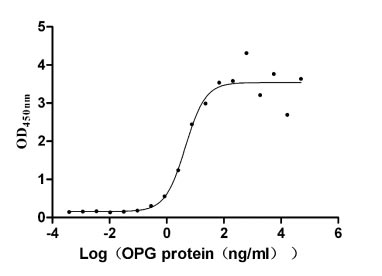
-AC1.jpg)
